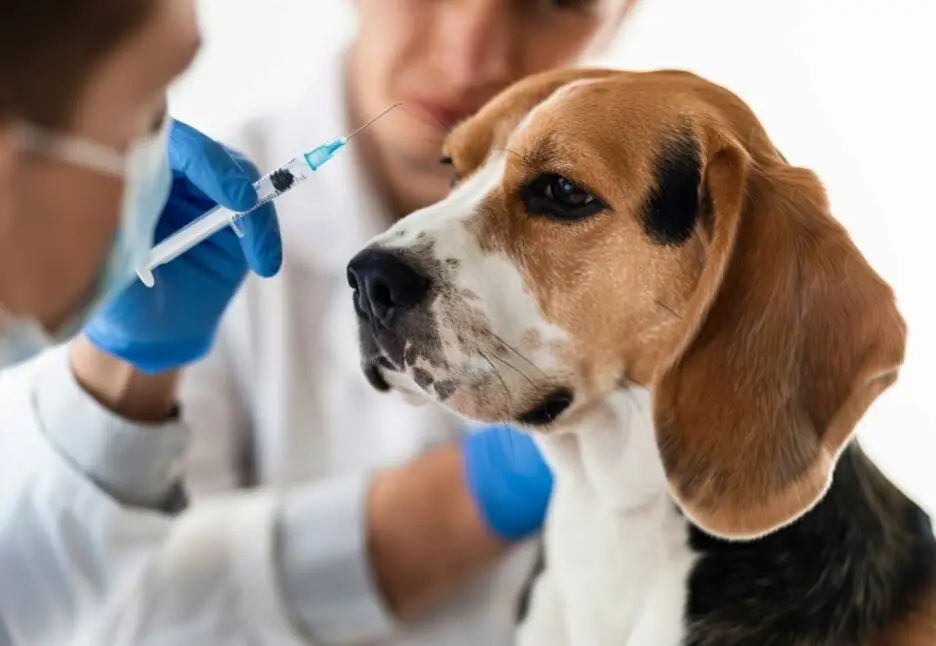How to Vaccinate Your Dog?The Ultimate Guide:Everything You Need to Know!

PHOTO: Yueke
Dogs need vaccines as part of their preventative health care to protect against certain diseases. Core vaccines are essential for all dogs, while non-core vaccines are given based on a dog's lifestyle or the geographic area they live in. Core vaccines include rabies, distemper, parvovirus, and more. Non-core vaccines include shots for Bordetella, Lyme disease, and Giardia.
Except for legal requirements for rabies and certain vaccination needs for kennels or travel, many veterinarians recommend vaccinating adult dogs every three years, according to the American Animal Hospital Association's Canine Vaccine Guidelines. However, an annual examination is still strongly recommended to ensure your pet remains in optimal health.
List of Core Dog Vaccines
Rabies: Rabies is a fatal viral disease that attacks the nervous system and is transmissible to humans.
Distemper: Distemper is a viral disease that affects the respiratory and gastrointestinal tracts and often the nervous system, and it is often fatal.
Hepatitis/Adenovirus: A vaccination against adenovirus type 2 protects against both adenovirus types 1 and 2. Adenovirus type 1 causes infectious canine hepatitis, affecting the liver and other organs, sometimes fatally. Adenovirus type 2 causes respiratory illness and may contribute to kennel cough.
Parvovirus: Canine parvovirus causes severe vomiting and diarrhea and can be fatal.
Parainfluenza: Parainfluenza affects the respiratory system and may contribute to kennel cough.
List of Non-Core Dog Vaccines Bordetella: Bordetella is a bacterial infection that can cause or contribute to kennel cough.
Leptospirosis: Leptospirosis is a bacterial disease affecting several systems, including the kidneys and liver, and can be fatal. It’s a risk only in certain geographic locations, so it’s not used routinely for every dog. Your vet can help determine if your dog needs this vaccine.
Lyme Disease: Lyme disease, spread by ticks, can cause arthritis and other issues like kidney disease. It’s a risk in certain geographic locations, so it’s not routinely used for every dog. Your vet can help decide if your dog needs this vaccine.
Coronavirus: Coronavirus primarily causes diarrhea. The risks of coronavirus infection are not as great as other viral diseases, so routine vaccination is not advised. Consult your vet to determine if your dog should receive this vaccine. Giardia: The vaccine for giardia can prevent the shedding of cysts but doesn't prevent infection. Therefore, it’s not generally recommended. Canine Influenza H3N8: This virus causes flu-like symptoms in dogs and is very contagious in close-contact settings like kennels. Some facilities now require this vaccination to prevent outbreaks. Discuss with your vet whether this vaccine is necessary for your dog. Rattlesnake Vaccine: This vaccine can lessen the severity of symptoms after a rattlesnake bite. Your vet can help determine your dog's risk based on where you live and your lifestyle.
Combination Vaccines
Dogs often receive combination vaccines, which bundle multiple vaccines into a single shot (except for rabies, which is given separately). These vaccines typically contain core vaccines or a combination of core vaccines and one or two others. Combination vaccines are often referred to by abbreviations:
D = Distemper
H or A2 = Adenovirus type 2 (also protects against hepatitis)
P = Parainfluenza
PV = Parvovirus
L = Leptospirosis
C = Coronavirus
For example, a DA2PPV vaccine means your dog was vaccinated for distemper, adenovirus (hepatitis), parvovirus, and parainfluenza viruses. Other common abbreviations for combination vaccines include DHPPV and DHLPPV.
By understanding and following these guidelines, you can help ensure your dog remains healthy and protected against various diseases.

